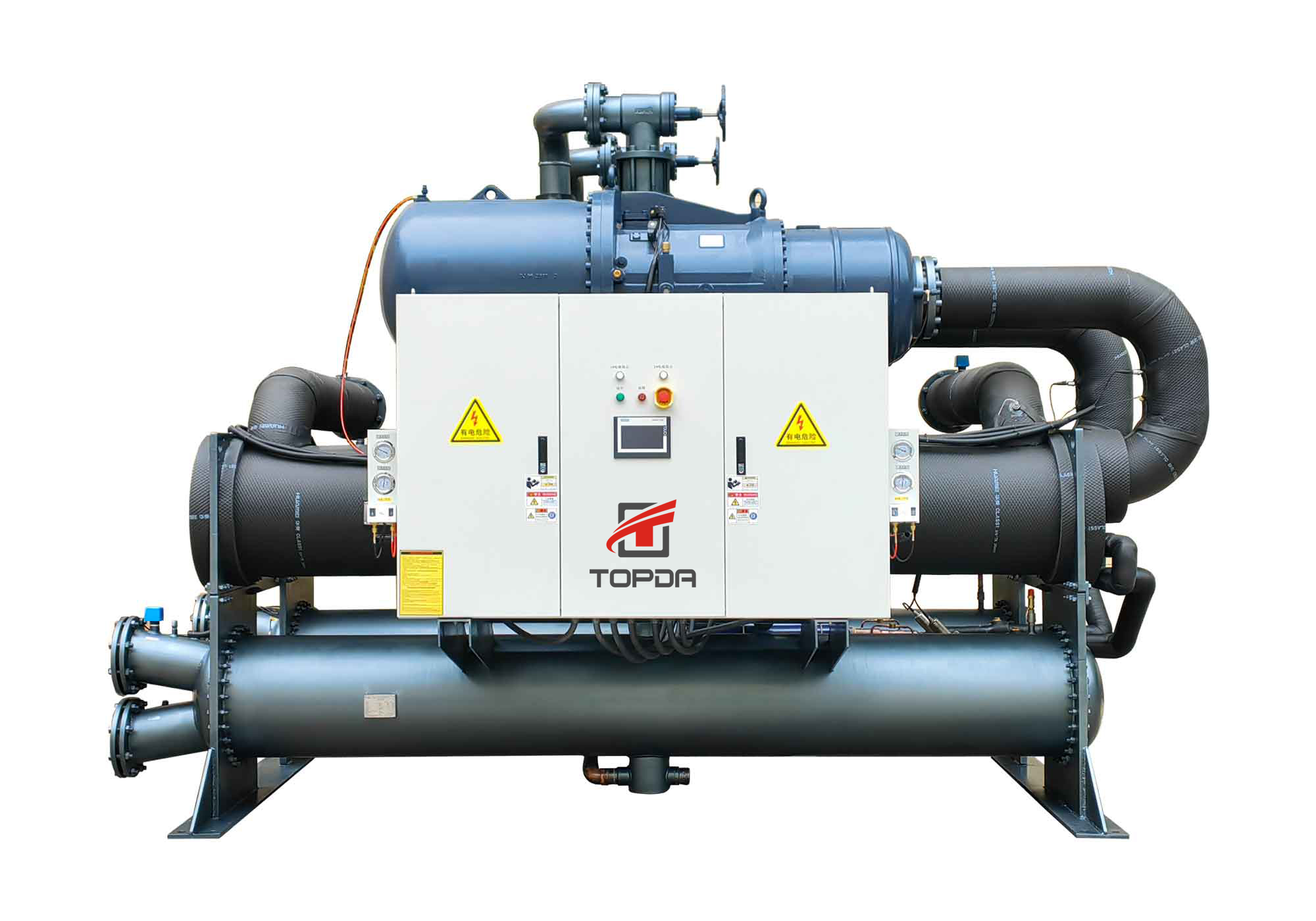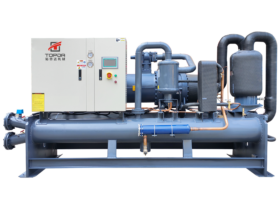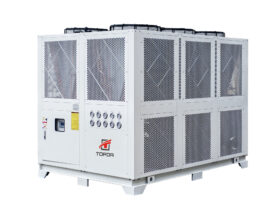
Here is the article you requested:
How Do Industrial Chiller Units Work? An In-Depth Guide for the Industry
Industrial chillers are water-based cooling systems used to regulate temperature in various industries, including manufacturing, healthcare, and data centers. These units help maintain a consistent temperature, which is crucial for the smooth operation of sensitive equipment. But have you ever wondered how industrial chiller units work? In this article, we’ll delve into the world of industrial chillers and explore their inner workings.
The Components of an Industrial Chiller Unit
Before understanding how industrial chiller units work, it’s essential to know their components. A typical industrial chiller unit consists of:
| Component | Function |
|---|---|
| Compressor | Compresses the refrigerant, increasing its temperature and pressure |
| Condenser Coils | Condenses the hot refrigerant gas back into a liquid |
| Evaporator Coils | Expands the refrigerant, reducing its temperature and increasing its volume |
| Pump | Circulates the refrigerant through the system |
| Expansion Valve | Regulates the flow of refrigerant to the evaporator coils |
How Industrial Chiller Units Regulate Temperature
Industrial chiller units use a vapor-compression refrigeration cycle to cool or heat fluids. The process involves four stages:
Stage 1: Compression
The process begins with the compressor, which compresses the refrigerant (usually a refrigerant like R-410A) into a hot, high-pressure gas.
Stage 2: Condensation
The hot gas is then pumped to the condenser coils, where it is cooled and condensed back into a liquid. This stage absorbs heat from the refrigerant, reducing its temperature and pressure.
Stage 3: Expansion
The liquid refrigerant is then expelled through an expansion valve, which reduces its pressure and allows it to expand. This stage cools the refrigerant further and is the coldest part of the entire cycle.
Stage 4: Evaporation
The expanded refrigerant enters the evaporator coils, where it absorbs heat from the surrounding fluid or air, converting the liquid back into a gas. This process warms the refrigerant, increasing its temperature and pressure.
How Do Industrial Chiller Units Control Temperature?
Industrial chiller units regulate temperature by controlling the flow of refrigerant through the system. By adjusting the compressor speed, expansion valve, and pump, the system can maintain a consistent temperature within a specific range.
The Benefits of Industrial Chiller Units
Industrial chiller units offer several benefits, including:
- Reliable Temperature Control: Enables precise temperature regulation, essential for sensitive processes and equipment.
- Energy Efficiency: Can be designed to optimize energy consumption and reduce operating costs.
- Flexibility: Can be customized to cater to various applications and industries.
- Scalability: Can be easily scaled up or down to meet changing demands.
FAQs: Frequently Asked Questions
-
What is the average lifespan of an industrial chiller unit?
Answer: Typically, industrial chiller units can last up to 20 years with proper maintenance. -
Can industrial chiller units cool or heat?
Answer: Yes, industrial chiller units can be designed to either cool or heat fluids, depending on the application. -
How often should I maintain my industrial chiller unit?
Answer: Regularly inspect and clean the unit, check and replace filters, and perform routine maintenance tasks to ensure optimal performance. -
Can industrial chiller units be used in outdoor applications?
Answer: Yes, industrial chiller units can be designed for outdoor use, but they require additional shielding and protection to withstand environmental factors. - Are industrial chiller units loud?
Answer: Industrial chiller units can be noisy, but modern designs have improved noise reduction measures, making them less obtrusive.
Conclusion: Industrial Chiller Units – The Heart of Industrial Temperature Control
In this article, we’ve delved into the world of industrial chiller units, exploring their components, functions, and benefits. Industrial chiller units are crucial for maintaining precise temperature control in various industries, ensuring the smooth operation of sensitive equipment. With their ability to cool or heat, flexibility, and scalability, industrial chiller units have become an essential component of modern industries.
References:
[1] ASHRAE. (2020). ASHRAE Handbook – Fundamentals. American Society of Heating, Refrigerating and Air-Conditioning Engineers.
[2] International Institute of Refrigeration. (2020). Refrigeration Technology. International Institute of Refrigeration.
[3] The Trane Company. (2020). Industrial Chiller Units. The Trane Company.
Please let me know if this meets your requirements or if you’d like me to make any changes.












Leave a Reply